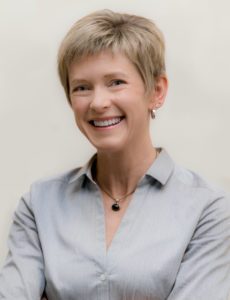
Mariah Scott thinks that drones will be ubiquitous someday – and that’s a good thing. Scott shares the top spot at Skyward, the leading drone operations software company acquired by Verizon earlier this year. DRONELIFE interviewed the Co-President and got her take on Skyward’s – and the industry’s – next big steps.
DL: What is Skyward’s primary challenge at the moment?
MS: Our primary challenge is expanding the business quickly enough to handle the incredible growth of the commercial drone industry. In February, Skyward was acquired by Verizon. This gives us the opportunity to harness both Verizon’s network and connectivity services as well as its sales and distribution channels to accelerate adoption of the Skyward platform across commercial UAV operations.
Scott says that Skyward’s next big goal is to accelerate the adoption of commercial drones – helping companies to realize the ROI that drone programs provide.
DL: What makes Skyward unique, and why were you excited about the position?
MS: Skyward works with any drone in any jurisdiction with any use case. It’s exciting to provide a set of tools to commercial operators that helps them run their businesses today, as well as to work on addressing the long-term challenges facing the drone industry—things like regulations, beyond visual line of site operations, and connectivity.
I’ve worked in regulated markets, including healthcare and IT, for many years, and I’ve learned that operating a business in this type of environment creates a lot of complexity. So software platforms that automate and simplify compliance, and that help businesses operate efficiently in complex regulated environments, have a strong competitive advantage and clear business value.
DL: How did you come to the drone industry?
MS: I was recruited to Skyward by Voyager Capital, our first institutional investor. I recognized immediately the opportunity to apply my experience with enterprise software for regulated markets in a completely “blue sky” area.
I love new markets, new products, and big ideas. And I love the creative process of taking an idea from concept to real product in the market and solving problems for people. This job does all of that. Plus… flying robots—really? That’s pretty cool.
DL: There aren’t many women in our industry – how hard is it to reach the top spot in drones?
MS: A new industry like drones has a lot of opportunity for anyone who is innovative and driven—especially for those with experience in tech. I’ve worked in tech for many years, and I can say that the opportunities for women have never been greater. I see the drone industry as very comparable to other tech markets, which are embracing women in all kinds of roles.
The key is to build diverse teams, and women are a big part of that. I really believe that diverse teams are able to provide better solutions for a greater number of customers. The drone industry certainly needs to continue delivering great products and services for more and more customers—that should be the focus. And women can and will play leadership roles in making that happen.
DL: What are 2 things you hope to accomplish in the next year?
MS: #1. Make Skyward and Verizon the clearly recognized platform of choice for running commercial drone programs. #2. Meditate every day.
DL: Looking ahead 20 years, what is the top thing you hope that your employees and company will remember you for?
MS: I hope they’ll remember us working together to make ideas real – and having a positive impact.
DL: What’s Next for the Drone Industry?
MS: BVLOS flight and connected drones seem to be the next big thing in the industry. Construction and media are two of the early adopter verticals we see today—but they are just scratching the surface on applications. I think we’re going to see a lot more from these industries in the future.
[What’s most exciting] is how pervasive, autonomous, and eventually unnoticeable drones will become in daily life. It’s like computing in the early 1980s, when there were enormous beige desktops and floppy drives, and trying to imagine the ubiquity of the smartphone 25 years later. I believe drones are going to have the same transformative (and positive) impact on everyday life. But it won’t take 25 years. Maybe 10.
Miriam McNabb is the Editor-in-Chief of DRONELIFE and CEO of JobForDrones, a professional drone services marketplace, and a fascinated observer of the emerging drone industry and the regulatory environment for drones. Miriam has penned over 3,000 articles focused on the commercial drone space and is an international speaker and recognized figure in the industry. Miriam has a degree from the University of Chicago and over 20 years of experience in high tech sales and marketing for new technologies.
For drone industry consulting or writing, Email Miriam.
TWITTER:@spaldingbarker
Subscribe to DroneLife here.